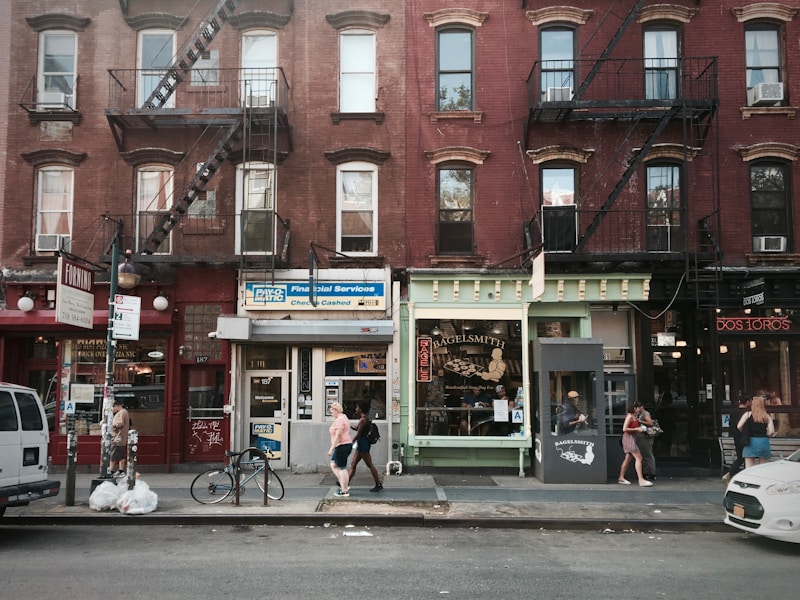Bridal Shop Accessibility Considerations: Making Your Dream Wedding Attainable for Everyone
When planning a wedding, one of the often-overlooked aspects is the accessibility of bridal shops. Not only is it crucial to find the perfect dress, but it's equally important that every bride feels welcome and comfortable while shopping. In this article, we will explore the key accessibility considerations for bridal shops, ensuring that all brides have the opportunity to find their ideal gown without barriers.
Understanding Bridal Shop Accessibility
Bridal shop accessibility refers to the measures taken to ensure that all individuals, regardless of their physical abilities or disabilities, can access the shop's facilities and services. This can encompass a variety of factors, from the physical layout of the shop to the understanding and training of staff regarding accessibility needs. Here are the primary aspects to consider:
Physical Access
| Aspect | Consideration |
| Entrance | Ensure that the shop has a wheelchair-accessible entrance with automatic doors. |
| Space Within the Shop | The store layout should provide enough space for wheelchairs to move freely between displays. |
| Dressing Rooms | Fitting rooms should be spacious enough to accommodate wheelchairs and provide grab bars for support. |
| Signage | Clear, visible signage for accessible entrances, restrooms, and dressing areas is essential. |
Staff Training
Equipped staff can significantly enhance the experience for everyone who visits a bridal shop. Training should include:
- Awareness of Accessibility Needs: Staff should be educated on various disabilities and how to assist those with specific needs.
- Empathy Training: Teaching staff to approach each customer with understanding and patience fosters a welcoming environment.
- Communication Skills: Staff should be trained to communicate effectively with individuals who have hearing or speech impairments.
Inclusive Product Offerings
Bridal shops should consider carrying a diverse range of products that cater to all body types and styles. This can include:
- Plus-Size Options: Stock a selection of plus-size gowns to ensure that all brides can find their dream dress.
- Adaptive Clothing: Offering bridal attire designed for individuals with physical disabilities, such as adaptive closures or adjustable fittings.
- Variety of Styles: Ensuring a range of dresses that cater to different cultural backgrounds and personal styles promotes inclusivity.
The Importance of Online Accessibility
In today’s digital world, an online presence is vital for bridal shops. Accessibility shouldn’t just be limited to physical locations; it should extend online as well. Here are a few things shops can do:
- Website Design: Ensure that the website meets accessibility standards (e.g., WCAG) so that individuals with visual impairments can navigate it easily.
- Virtual Appointments: Offer online consultations via video calls for those who may have mobility issues or prefer shopping from home.
- Easy Navigation: A clear and simple website layout aids in finding essential products without confusion.
Community Engagement and Feedback
Bridal shops that actively engage with their community can better understand the unique needs of their customers. This can be achieved through:
- Feedback Forums: Establish forums or surveys to gather input on how to improve accessibility.
- Community Events: Hosting events designed for individuals with various accessibility needs can help shops to assess and adapt their services accordingly.
- Partnerships: Collaborate with local disability organizations to broaden understanding and improve services.
Summary and Recommendations
When it comes to bridal shop accessibility, consideration is key. Shops must provide physical access, trained staff, inclusive products, and a robust online presence. Engaging with the community and taking feedback seriously can foster a welcoming environment for all brides.
In conclusion, ensuring that bridal shops consider accessibility means more than just compliance; it’s about creating an inclusive space where every bride can find her perfect gown, feel supported, and celebrate her love story without barriers.
For bridal shops looking to improve their accessibility, consider evaluating your place’s layout and consulting with local disability advocacy groups. Not only will this contribute positively to your business reputation, but it will also ensure that your services are available to everyone in your community.
